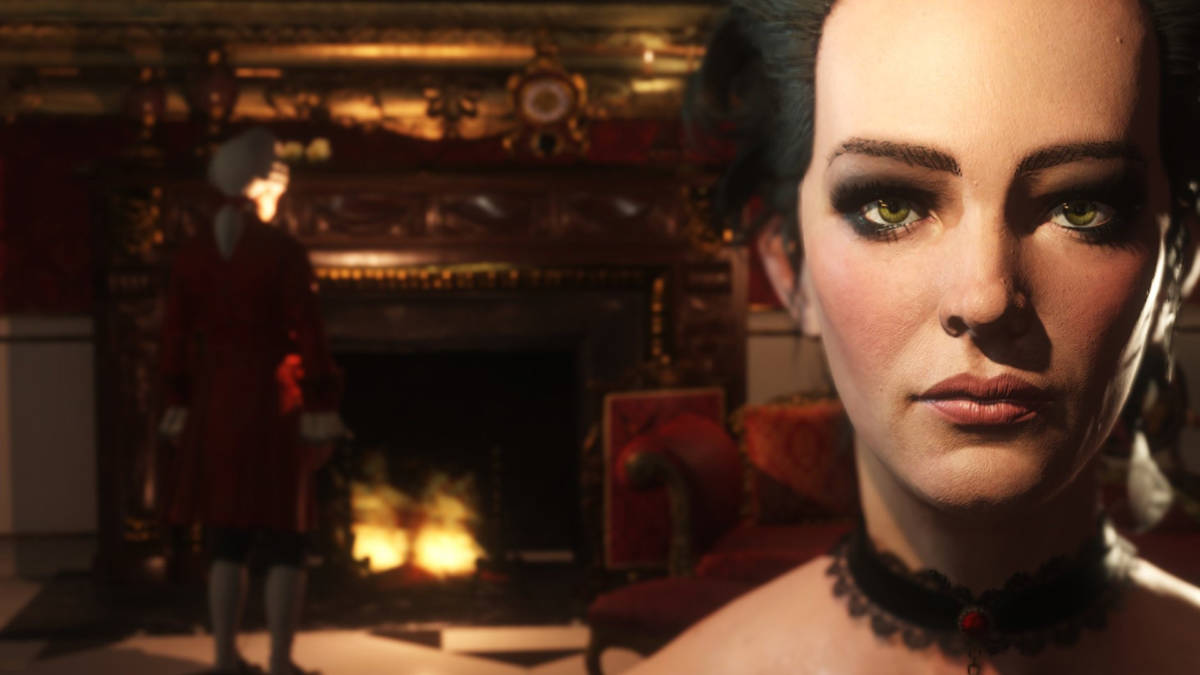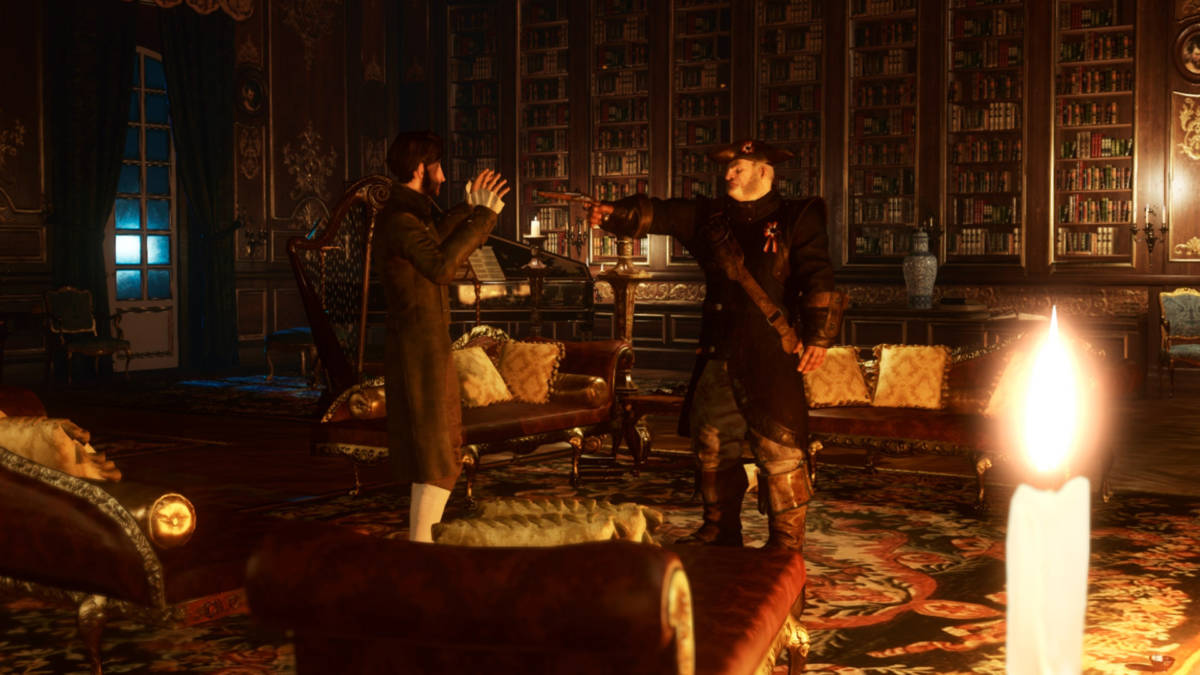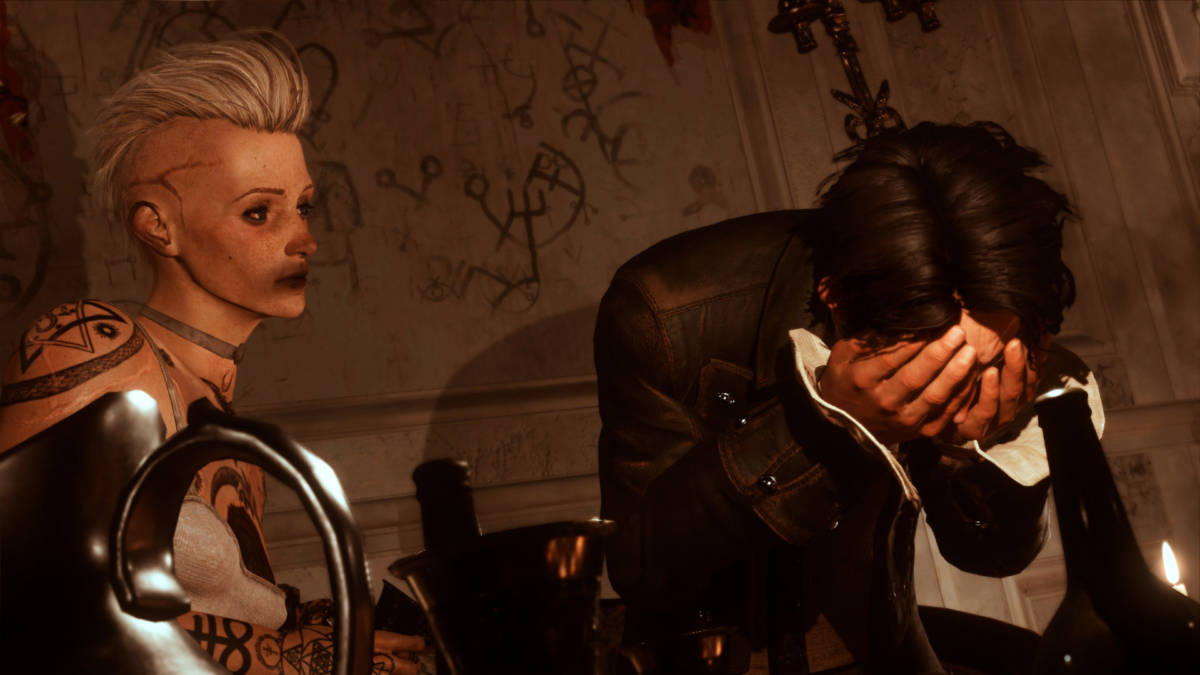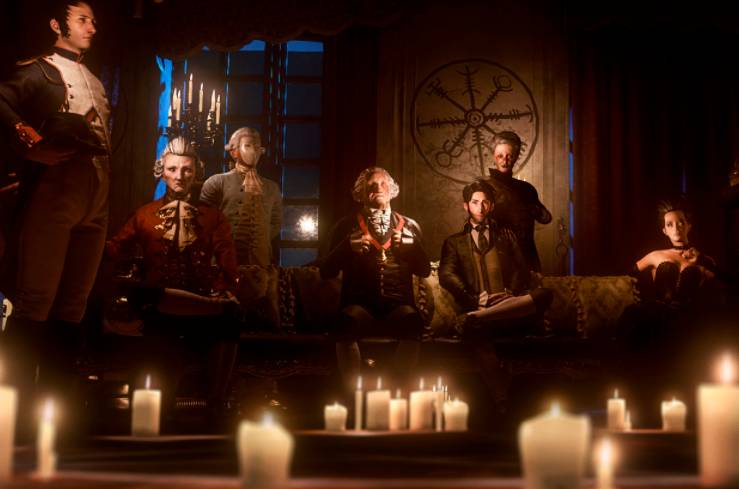Developer: Big Bad Wolf Studio
Publisher: Focus Home Interactive
Platform(s): PS4, Xbox One, PC
Review copy provided
For a few years now, Telltale has had the monopoly on narrative adventure games, and it’s a throne that’s remained largely unchallenged. In order to really make some headway in the genre, games have to offer something more than just tough moral choices. Like Life Is Strange and its time travel mechanic, the game has to offer something unique to compete with the Telltale juggernaut. The Council does just that.
At first glance, the only thing that sets The Council apart is the setting and premise. It’s 1793 and you are Louis de Richet, a Frenchman who, along with his mother Sarah de Richet, is a member of a secret society known as the Golden Order. Unfortunately, your dear mother has gone missing on an island manor off the coast of England, and Louis has been invited to the island by its owner Lord Mortimer.
Sarah’s disappearance happens to coincide with a social event Mortimer holds at the manor, where he invites key members of society from around the world. At this function, you’ll be rubbing shoulders with the likes of George Washington, Napoleon Bonaparte, Samuel Godoy and Johann Christoph Von Woellner. It’s a who’s who of political figures from that era, and everyone at the party has their own agenda, so you have to balance the search for your mother with establishing relationships with the other attendees.

In order to do this, The Council utilises some RPG elements that allow you to evolve Louis how you want to. At the start of the game, you can choose to have Louis specialise in one of three classes. The Diplomat gives Louis the skillset of a politician, meaning you have knowledge of social etiquette and politics. The Occultist is all about deception, manipulating people into doing his bidding, whilst providing Louis with a background in science and the arts. Finally, the Detective is all about using logic and psychology in conversation, able to notice irregularities in the environment.
Depending on what class you pick and what skills you choose to level up determines how you interact with the environment, what dialogue options you have and what opportunities to learn more about different characters present themselves. This also stacks on top of the genre standard “fork in the road” choices that occur a couple of times throughout the first episode.
It’s effective as it creates a more intricate storyline tree that actually can reveal new details on second or third playthroughs. For instance, the diplomat could use his skill in etiquette during interactions between multiple characters, letting you know how one innocuous act is actually a social faux pas. Meanwhile, the detective with a skill in psychology can pick up on facial cues, revealing more details about a character’s history. Branches reveal more branches, and so on and so forth.

Still, the only thing that picking a class determines is what you’re good at when you arrive on the island, but as you finish chapters you gain experience which can be used on skills in other classes. It’s possible to end the first episode reaching level 1 in nearly every skill, but using skills in the game costs stamina equal to the level of difficulty of that action.
Whilst being proficient in all skills will mean more opportunities will occur, losing all your stamina means you’ll be unable to use anything, which severely handicaps you in every facet of your investigation. With that in mind, it’s arguably much wiser to specialise in your class, as higher levels decrease the amount stamina consumed. Some might see that as a contrivance, but it’s another effective way that the game encourages multiple playthroughs. The fact there’s three classes and three save slots isn’t a coincidence.
Skills come into play in a big way during confrontations. During confrontations, you engage in a multi-step conversation with another character with a specific goal in mind. This could be anything from getting information to proving your worth to somebody. Each character has their own strengths and weaknesses, meaning you have to analyse each character and use that knowledge for your own benefit, with success and failure leading to variety of consequences.

It’s simplistic in a way, as it’s just a case of finding out what tact the character is weak to and exploiting it all the way to victory, but it’s certainly more interesting than the tried and tested “good/bad/neutral” responses that other narrative games have championed. Instead of picking the good response and having everyone like you, you have to become a social chameleon, blending in and changing depending upon the situation.
Perhaps most impressively, the skills you use can change how you choose to interpret clues you discover. The best example of this is when you find a note describing how another character is suffering from fits and how they’re being treated. If you use the science skill, Louis will state how this treatment is used to combat epilepsy, but if you come at it from an occult angle, Louis will describe the treatment as concurrent with an exorcism.
All too often in narrative games once you find a clue, the game will tell you about its significance without giving you a chance to interpret things in your own way, so to have that shade of grey is fantastic. Between the clues and the conversations you engage in, The Council adds a layer of intrigue to a thriller that raises more questions than it answers, which is a great thing for a first episode.

Unfortunately, the ambition for The Council has possibly been greater than Big Bad Wolf Studios’ means. The game is somewhat ropey, as the graphics and facial animations are underwhelming. Lip-syncing seems to be almost non-existent and the camera occasionally goes mental whilst wandering the manor. Also, this is somewhat of a personal pet peeve, but Louis de la Richet’s voice actor is suspiciously American despite him being French, with the only possible reasons being that the actor in question was cheap, or that they wanted an American voice so that Napoleon appeared more French.
The developers have assured us that certain issues will be fixed by the time the game releases, but they ultimately didn’t get in the way of a game unafraid to take some risks in a crowded genre. Though the success of The Council will ultimately be determined by how Big Bad Wolf Studios follow on from this debut episode, The Mad Ones is a great starting point for a narrative adventure game that shows a lot of promise.
Will you be picking up the first episode of The Council today? Sound off in the comments below, and check out what our head honcho lad Jimmy thought of the latest battle royale game, Darwin Project.
Some of the coverage you find on Cultured Vultures contains affiliate links, which provide us with small commissions based on purchases made from visiting our site.

